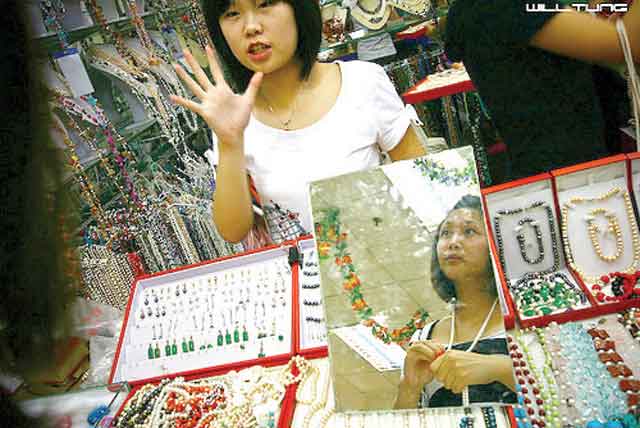THE Chinese government says it encourages companies to export high-quality products to Africa instead of making the continent the dumping place of counterfeit products.

The commercial counsellor in China's Ministry of Commerce, Yajing Xie, said the government attaches importance to the quality of products that leave the sprawling country but need the assistance of Africans to control the situation.
Xie said co-operation with Africa has always been based on equality, diversity and mutual respect and that is the main reason for the unprecedented 33,5 per cent annual growth in trade between the two countries.
Last year alone, the trade volume between Africa and China amounted to US$106 billion, of which imports from Africa accounted for half.
That was up from US$10 billion in 1998, according to assistant minister of foreign affairs Zhai Jun.
gThere could be some low-quality exports (to Africa) but they don't represent China. We are firmly opposed to fake products but, of course, it's easier said than done. There is also a market need for them and that is why Africa and China must co-operate, h Xie told a group of 21 journalists from Africa.
The journalists wanted to know whether Chinese products are produced for specific regions – meaning that goods destined for Africa are cheaper and thus of lower quality than those made for the European market.
gWe don't have product difference. We export based on the market needs and your customs and quality inspectors must do their job and co-operate with us checking it. The Chinese government has always been committed to checking the quality, h Xie said.
She said China is working very hard to eliminate fake products because they affect the country's reputation.
gThe problem is China is big with a large number of companies exporting to Africa and sometimes we lack hands. Thus we expect co-operation from Africa, h Xie said.
She said China has stepped up efforts to do business with Africa, with plans to set up three to five free-trade zones on the continent in the next few years.
Although trade between the two has been affected by the economic crisis, China's direct investment in Africa stood at US$552 million during the first six months of this year, up by 81 per cent from the same time last year.
At present, about 500 export items from 31 African countries also enjoy zero-tariff treatment in China.
Yong Wang, chief investment officer at the China-Africa Development Fund, said they have set aside US$5 billion in the form of soft loans to encourage Chinese companies to go into joint ventures with their African counterparts.
The loans will run five to eight years and the targeted industries include mining, agriculture, industrial parks and infrastructural development.
Over the last two years, Wang said, they have already committed around US$500 million for around 20 projects in Africa. For those loans, the Chinese companies contributed around US$2 billion from their own pockets.
Wang said their main challenge is to find suitable project opportunities in Africa, as well as lack of infrastructure and lack of trained staff.
Xie said China has trained around 30 000 Africans over the past years and hopes to train another 15 000 professionals, a goal set at the 2006 China-Africa summit.
From the Namibian Newspaper